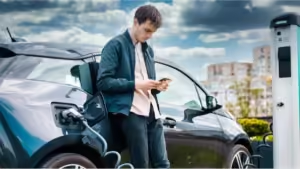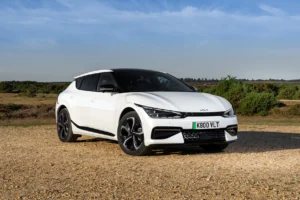Revving up your electric car insurance game can be as exciting as it is essential. With the rapid growth of electric vehicles (EVs), getting the right insurance has never been more important. In this guide, we’ll take you through everything you need to know about electric car insurance in 2024.
The Rise of Electric Cars
Electric cars have zoomed from niche to mainstream in a matter of years. Thanks to advancements in battery technology, increased range, and growing environmental awareness, EVs are here to stay. The insurance industry has had to adapt swiftly, creating policies tailored to the unique characteristics of these vehicles.
Insurance companies now offer specialized plans that account for factors like battery replacement and charging station coverage. This shift is not just a trend; it’s a revolution in how we think about vehicle insurance.
Understanding Electric Car Insurance
Electric car insurance isn’t just a rebranded traditional policy. It has its own set of considerations and components that cater to the specifics of electric vehicles. Understanding these can help you make an informed decision.
Components of Electric Car Insurance
The basic components of electric car insurance include liability, collision, and comprehensive coverage. However, there are additional elements:
- Battery Coverage: Considering the high cost of electric batteries, this is crucial.
- Charging Station Coverage: Covers damages or theft of home charging stations.
- Roadside Assistance: Tailored for EVs, this includes services specific to electric cars.
Unique Considerations
Electric vehicles come with unique risks and benefits. For instance, they generally have fewer moving parts, which means fewer mechanical failures. However, the cost of repairing or replacing a battery can be high. Insurance policies must reflect these nuances.
Cost Analysis
Comparing the cost of insuring an electric car to a traditional gasoline vehicle can be enlightening. While the initial premiums for electric cars might seem higher, potential savings and incentives can offset these costs.
Initial Premiums
Electric car insurance often starts at a higher premium due to the expensive technology involved. However, many insurers offer discounts for eco-friendly vehicles.
Potential Savings
Electric cars generally have lower maintenance costs. This can translate into lower insurance claims and eventually, lower premiums. Additionally, many states offer rebates and tax incentives for electric car owners, further reducing the overall cost.
Incentives and Discounts
Many insurance companies provide discounts for electric vehicle owners. These can include lower rates for drivers who use renewable energy to charge their vehicles or for those who drive fewer miles, as EVs often do.
How to Choose the Right Policy
Selecting the right electric car insurance policy involves several steps. Here’s a guide to help you through the process.
Assess Your Needs
First, understand your specific requirements. Do you need extensive battery coverage? Is roadside assistance crucial for you? List your priorities.
Compare Policies
Next, compare different insurance providers. Look at what each policy offers, especially in terms of coverage unique to electric vehicles. Make sure to read the fine print.
Consult Experts
Finally, consider consulting with an insurance expert who specializes in electric cars. They can provide insights and recommendations tailored to your situation.
Case Studies
Real-life examples can be incredibly insightful. Here are a few experiences from electric car owners who navigated the insurance landscape successfully.
Example 1
Jane, a Tesla Model 3 owner, found that including battery coverage in her policy saved her thousands of dollars when she needed a battery replacement.
Example 2
Bob, who owns a Nissan Leaf, benefited from a policy that included roadside assistance tailored for electric vehicles. This came in handy when he had a charging issue far from home.
Example 3
A corporate fleet manager used specialized electric car insurance to cover a fleet of company EVs, balancing cost with comprehensive coverage.
The Future of Electric Car Insurance
The future of electric car insurance looks promising, with several emerging trends.
Usage-Based Insurance
This model uses telematics to track driving behavior and charge premiums accordingly. It’s particularly beneficial for electric cars, which are often driven fewer miles.
Integration with Smart Technology
Future policies might integrate with smart home systems, providing seamless coverage for both the vehicle and home charging stations.
Increased Competition
As more insurance companies enter the electric car market, increased competition is likely to drive down premiums while improving coverage options.
Conclusion
Navigating the world of electric car insurance doesn’t have to be daunting. By understanding the unique aspects of electric vehicles and what to look for in a policy, you can make an informed decision that protects both you and your car.
Ready to find the perfect policy for your electric car? Start by assessing your needs, comparing different policies, and consulting experts if necessary. Your electric car deserves the best protection, and with the right insurance, you can drive with peace of mind.



